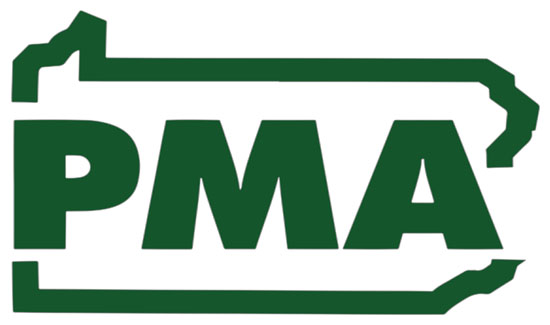Legislative Review of Wolf Budget Begins

The annual line-by-line examination of the governor’s last General Fund spending proposal by the House Appropriations Committee is underway. Governor Tom Wolf has simplified the process for lawmakers by offering a preposterous spending hike of nearly 17 percent, or $6 billion, after two years of crushing the productive sector with his pandemic policies. Expect Republicans, who hold the majority in both legislative chambers, to walk right past that outlandish price tag and get to work on a fiscally responsible spending plan.
“With this budget plan, Wolf is setting a debt trap for the next governor much like Ed Rendell did when he pumped one-time federal dollars into public education spending,” said PMA President & CEO David N. Taylor. “When those dollars disappeared, Tom Corbett faced the ‘billion-dollar lie’ that he cut public education spending. Unless a sound budget is enacted, the same will happen to the next governor when the federal Covid relief money disappears.”
Amusingly, Governor Wolf opened his address by claiming credit for a budget surplus his party had tried to spend.
“This surplus isn’t the result of fiscal discipline or stellar economic performance,” PMA’s Taylor said. “State government has unspent money because the feds backed up the Brinks truck to the Capitol and they shoveled out the Biden-bucks. It’s not a real surplus, which means the elevated levels of spending Wolf is proposing aren’t sustainable.”
The plan has a little bit to displease everyone outside of the teachers’ unions and other privileged insiders.
Of the proposed $6 billion spending hike, $2 billion would go to a public education system that is already one of the highest funded in the nation. All of this despite a recent Pennsylvania Independent Fiscal Office study demonstrating that student performance in public K-12 schools does not correspond with funding.
On another front, Wolf continues to push for a hike in the state-mandated minimum wage when businesses, desperate for workers, are already offering wages far above the current minimum wage of $7.25. And while outside the General Fund budget itself, Wolf continues his jihad to impose a carbon tax on Pennsylvania electricity generation by forcing the commonwealth into the “Regional Greenhouse Gas Initiative” cartel. A superficial proposal to reduce our 9.99% Corporate Net Income (CNI) tax comes booby-trapped with an elimination of deductions and greater interference from Department of Revenue bureaucrats.
Leaders in the House and Senate were not amused.
“Gov. Wolf may see today’s address as a coronation of his time in office, but for the eighth straight year, it falls on the Legislature to rein in calls to dramatically increase state spending,” House Speaker Bryan Cutler (R-Lancaster) said in a statement.
“Our caucus has consistently supported data-driven,” he added, targeted investments to move our Commonwealth forward as we once again recognize this budget is not about the man making the requests, but about the people who will ultimately have to pay the bill.”
In a joint statement, Senate Republican leadership said that, “the money Wolf is proposing to spend on one-time expenses could be better spent over the next several years to prevent massive tax increases. Furthermore, Gov. Wolf’s massive spending plan comes at a time when we are trying to help Pennsylvania business owners get back on their feet, while also working to return the economic and personal freedoms to Pennsylvania residents that were limited with the onset of the COVID-19 pandemic.”
The Independent Fiscal Office (IFO) determined that under the Wolf spending plan the Commonwealth will be saddled with negative balance of $13 billion by FY 2026-27. When the pipeline of easy federal dollars dries up, Pennsylvania taxpayers will be the ones left paying for all the bloated programs.
On the public education front, Pennsylvania already spends more than $19,000 per student—the seventh-highest level in the nation. Two billion more won’t necessarily make a positive difference, just as the additional billions in the past didn’t make much of a difference, according to another IFO review that found no correlation between increased spending and student performance.
“The data suggest there is little or no correlation between the current expenditures spent per student and the share of students that score proficient or above on standardized tests,” the IFO report noted.
At the same time, the governor is proposing to cap the administrative costs of a hugely successful Educational Improvement Tax Credit program that provides scholarships so students in underperforming public schools can attend private schools. He is also pushing for cuts to charter schools.
The minimum wage increase, as NFIB-PA points out, is a needless government intrusion into the wage market.
“Governor Wolf again called for increasing the minimum wage to an eventual $15/hour,” NFIB State Director Greg Moreland said in a statement. “The median wage in Pennsylvania increased from $16.50 in 2020 to $17.00 in 2021. The market continues to move wages far beyond $7.25/hour, demonstrating little need for new government wage mandates.”
At the same time, the issues really hurting small business, Moreland says, are being ignored.
“With an unprecedented combination of inflation, supply chain disruption, labor shortages, and a ticking time bomb of unemployment compensation costs, Governor Wolf’s final state budget address and 2022 policy priorities simply fail to meet the challenges confronting Main Streets across the Commonwealth,” he said.
Fiscal restraint and responsibility should be the theme of the General Assembly in this, last budget cycle of the Wolf Administration. Anything less will spell disaster for Pennsylvania’s next chief executive, regardless of political party.




